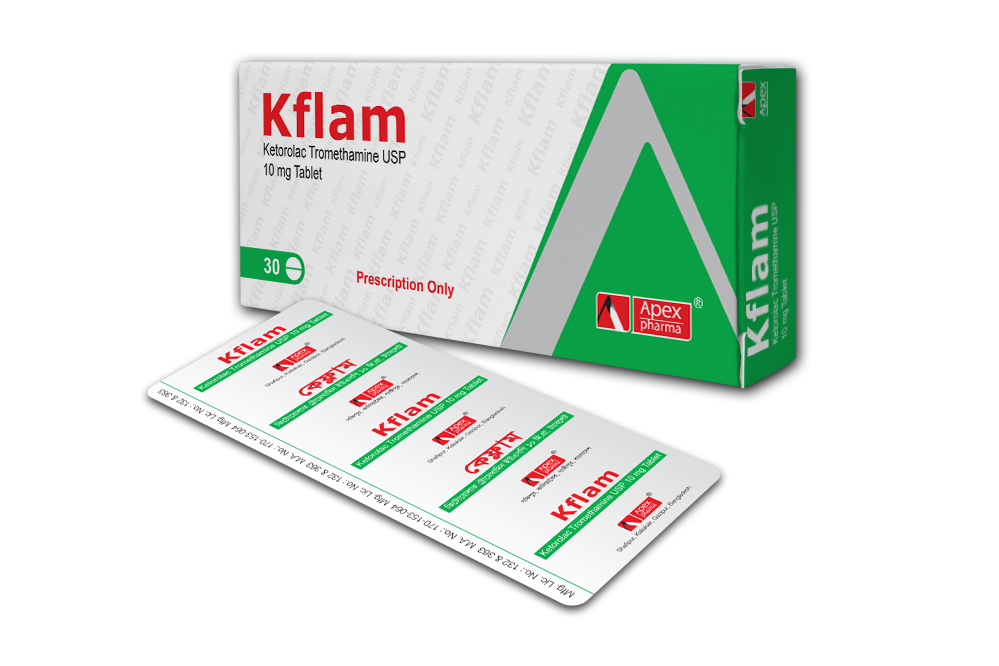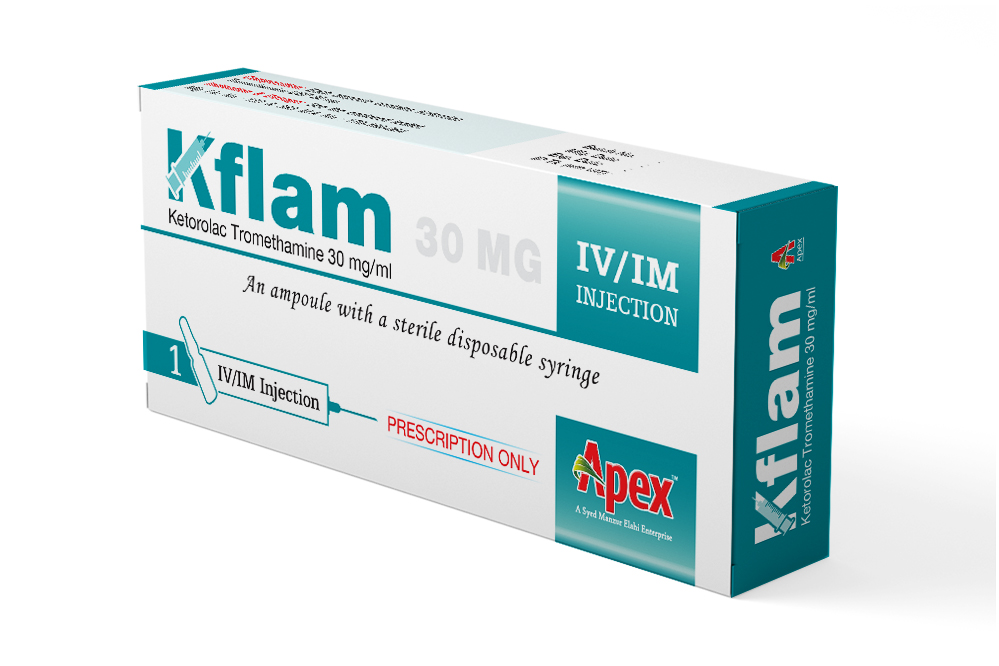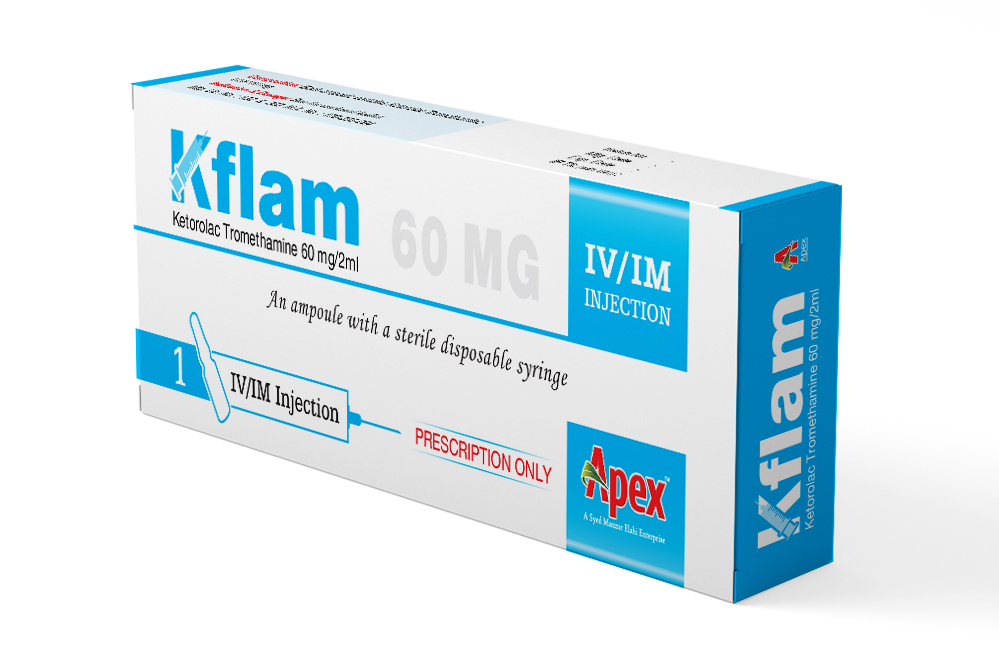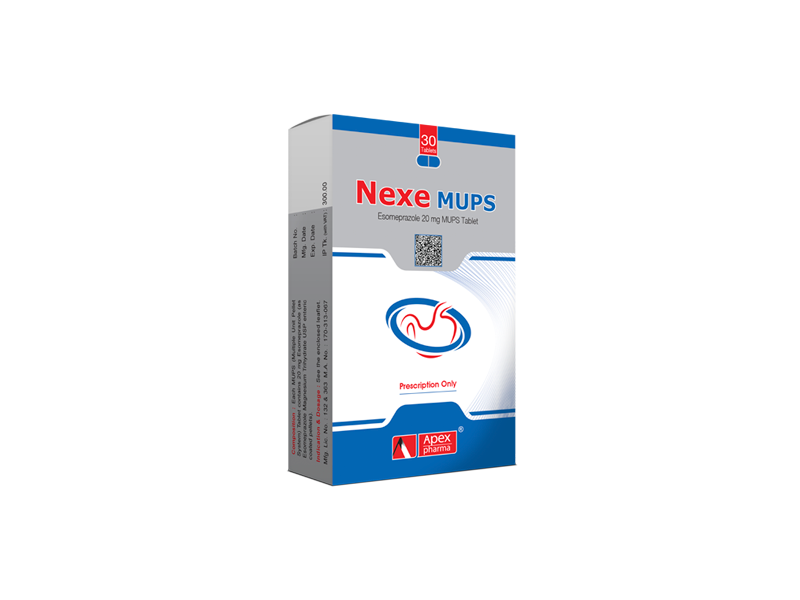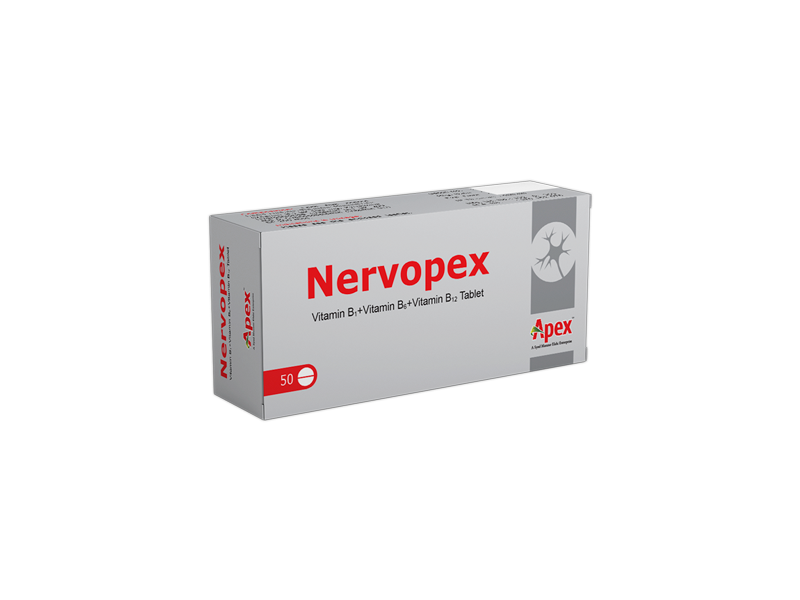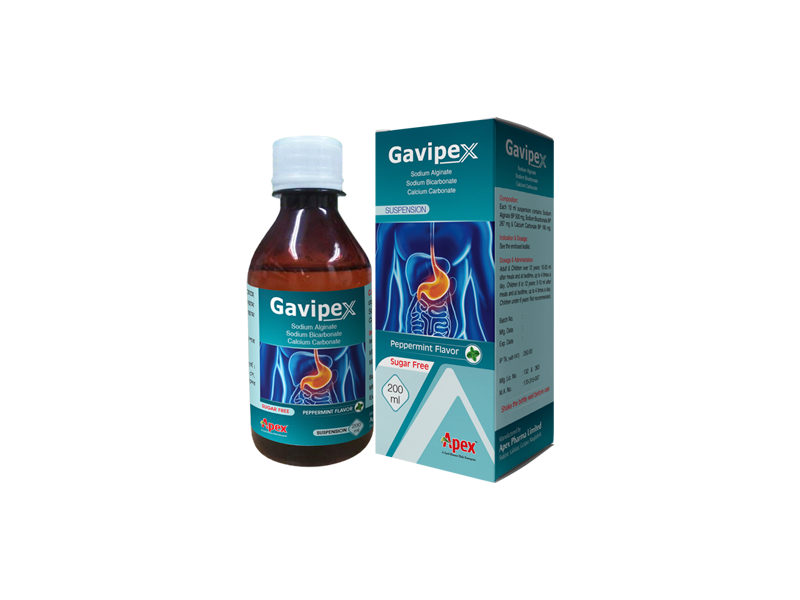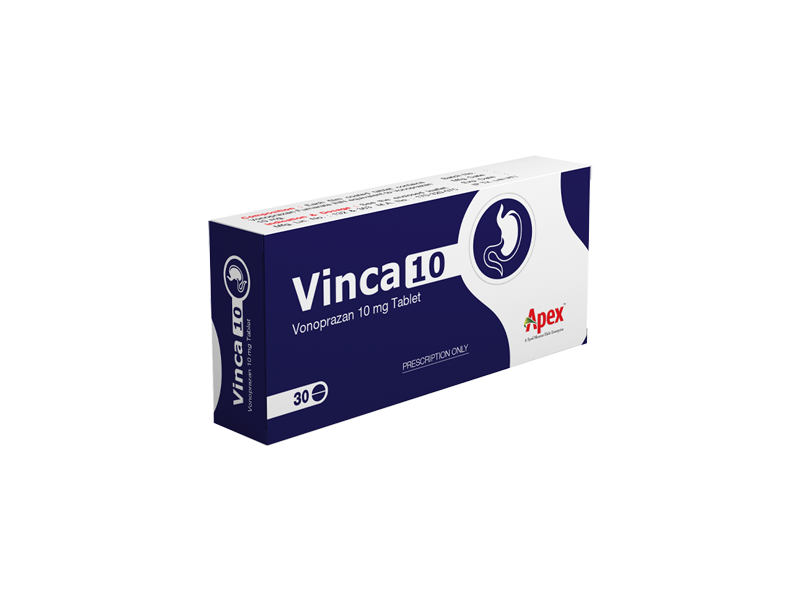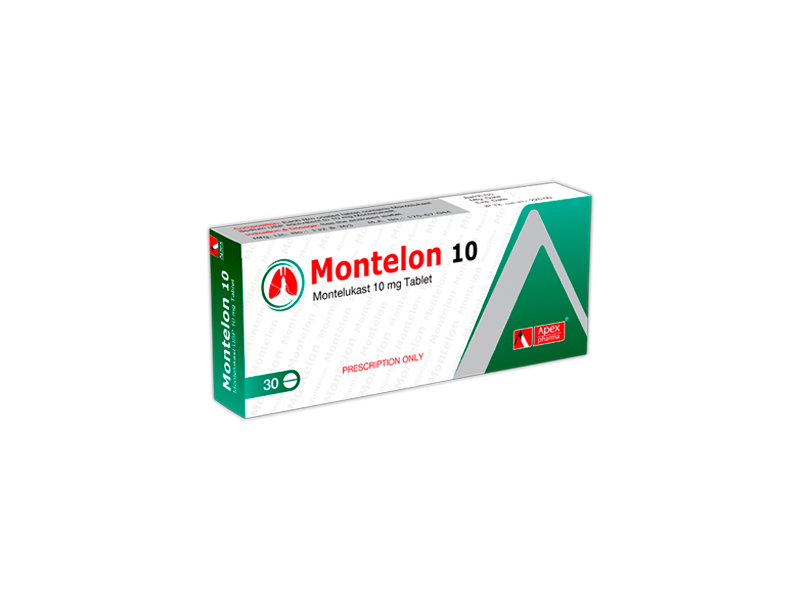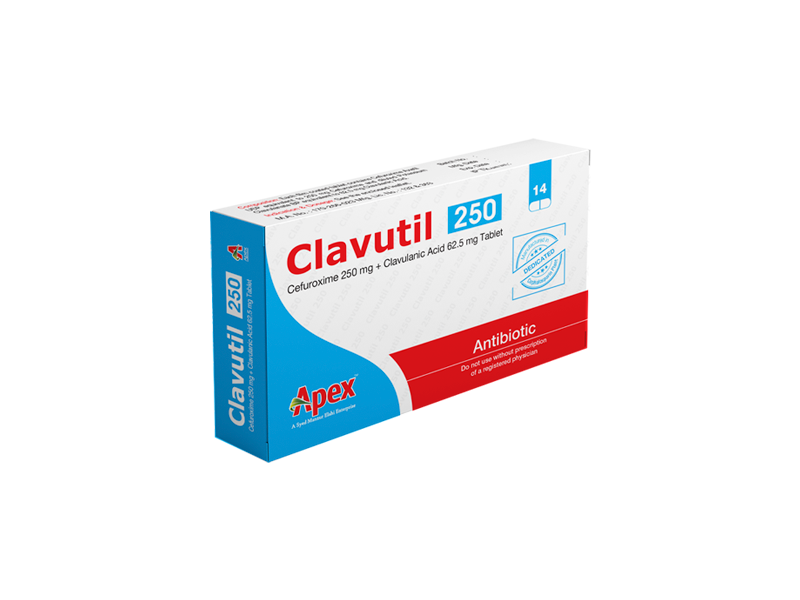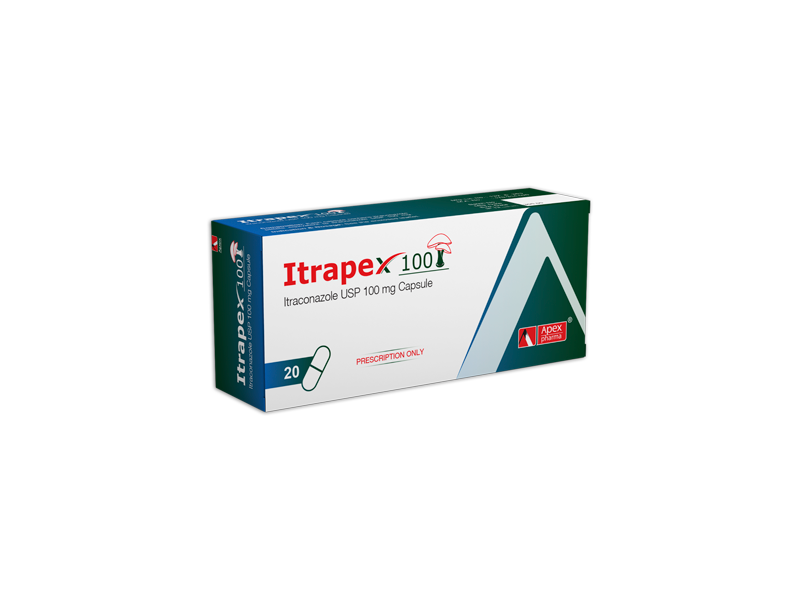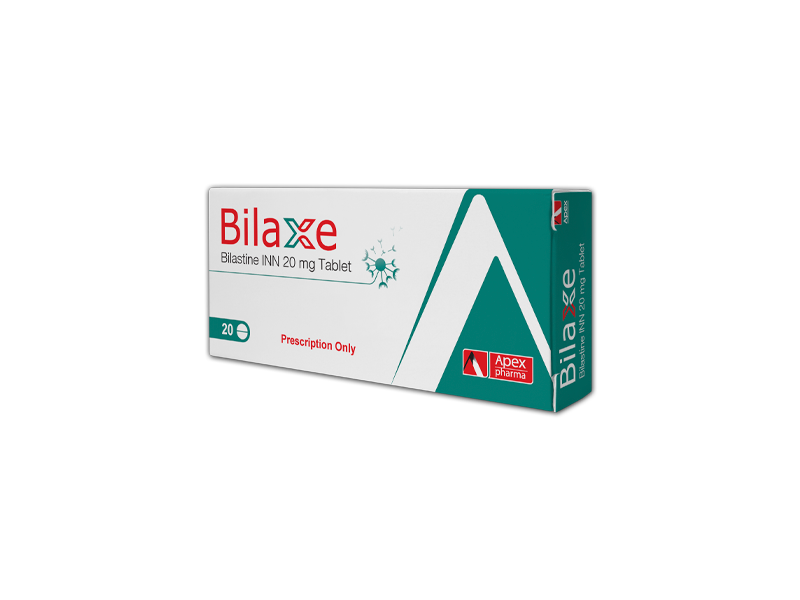
Kflam
Home / By Brand Name / Kflam
Composition
Kflam 10 Tablet: Each film coated tablet contains Ketorolac Tromethamine USP 10 mg.
Kflam-30 Injection: Each ampoule contains 1 ml sterile solution of Ketorolac Tromethamine USP 30 mg for IV/IM
administration.
Kflam-60 Injection: Each ampoule contains 2 ml sterile solution of Ketorolac Tromethamine USP 60 mg for IV/IM
administration.
Pharmacology
Kflam (Ketorolac Tromethamine) is a potent analgesic of the non-steroidal anti-inflammatory drug (NSAID). It inhibits the
cyclo-oxygenase enzyme system and hence prostaglandin synthesis. Thus it gives minimal inflammatory effect at its
analgesic effect. Kflam is not an anesthetic agent and possesses no sedative or anxiolytic properties; therefore it is not
recommended as a pre-operative medication for the support of anesthesia when these effects are required. It is not an
opioid and has no known effects on opioid receptors.
Indication
Relief of pain associated with surgical procedures such as major abdominal, orthopedic, dental or gynecological surgery;
acute & chronic musculo-skeletal pain, renal colic & cancer pain.
Dosage And Administration
Combined duration of use of Kflam injection and Kflam tablet is not to exceed five (5) days. The use of Kflam tablets is only
indicated as continuation therapy to Kflam injection. Kflam injection may be used as a single or multiple doses, on a regular
or schedule for the management of moderately severe, acute pain that requires analgesia at the opioid level, usually in a
postoperative setting. Hypovolemia should be corrected prior to the administration of Ketorolac Tromethamine. Patients
should be switched to alternative analgesics as soon as possible, but Ketorolac Tromethamine therapy is not to exceed 5
days. When administering Ketorolac Tromethamine injection the IV bolus must be given over no less than 15 seconds. The
IM administration should be given slowly and deeply into the muscle.
Single-Dose Treatment: The following regimen should be limited to single administration use only.
IM Dosing: Patients < 65 years of age: One dose of 60 mg.
Patients > 65 years of age, renally impaired and/or less than 50 kg of body weight : One dose of 30 mg.
IV Dosing: Patients < 65 years of age: One dose of 30 mg.
Patients > 65 years of age, renally impaired and/or less than 50 kg of body weight: One dose of 15 mg.
Multiple-Dose Treatment (IV or IM):
Patients < 65 years of age: The recommended dose is 30 mg Kflam injection every 6 hours. The maximum daily dose should
not exceed 120 mg. For patients > 65 years of age, renally impaired patients and patients less than 50 kg: The
recommended dose is 15 mg Kflam injection every 6 hours. The maximum daily dose for these populations should not
exceed 60 mg.
Contraindication
Ketorolac Tromethamine is contraindicated in patients having hypersensitivity to this drug or other NSAIDs and those patients
in whom aspirin or other prostaglandin synthesis inhibitors induce allergic reactions. It is also contraindicated in a history of
peptic ulcer or gastro-intestinal bleeding, moderate or severe renal impairment (serum creatinine >160 micromol/l), a history of
asthma. Ketorolac Tromethamine is contraindicated as prophylactic analgesia before surgery due to inhibition of platelet
aggregation and is contraindicated intraoperatively because of the increased risk of bleeding. It is also contraindicated during
pregnancy, delivery or lactation.
Precaution
Patients over the age of 65 years may be at a greater risk of experiencing adverse events than younger patients. Ketorolac
Tromethamine can cause gastro-intestinal irritation, ulcers or bleeding in patients with or without a history of previous
symptoms. Bronchospasm may be precipitated in patients with a history of asthma. Since Ketorolac Tromethamine and its
metabolites are excreted primarily by the kidney, patients with moderate to severe impairment of renal function (serum
creatinine >160 micromol/l), should not receive. Fluid retention and oedema have been reported with the use of Ketorolac
Tromethamine.
Side Effect
Commonly occurring side effects are nausea, vomiting, gastro-intestinal bleeding, melaena, peptic ulcer, pancreatitis, anxiety,
drowsiness, dizziness, headache, hallucinations, excessive thirst, inability to concentrate, insomnia, malaise, fatigue, pruritus,
urticaria, skin photosensitivity, Stevens-Johnson syndrome, flushing, bradycardia, hypertension, palpitations, chest pain,
infertility in female, dyspnea, asthma, pulmonary edema, fever.
Use in Pregnancy and Lactation
Safety in human pregnancy has not been established. Ketorolac Tromethamine has been detected in human milk at low levels.
Ketorolac Tromethamine is therefore contraindicated during pregnancy, delivery or in breast feeding mothers.
Drug Interaction
Ketorolac tromethamine should not be used with other NSAIDs or in patients receiving aspirin because of the potential for
additive side effects. Care should be taken when administering Ketorolac tromethamine with anti-coagulants since
co-administration may cause an enhanced anti-coagulant effect. Ketorolac tromethamine and other non-steroidal
anti-inflammatory drugs can reduce the anti-hypertensive effect of beta-blockers and may increase the risk of renal impairment
when administered concurrently with ACE inhibitors, particularly in volume depleted patients. Caution is advised when
methotrexate is administered concurrently, since some prostaglandin synthesis inhibiting drugs have been reported to reduce
the clearance of methotrexate, and thus possibly enhance its toxicity. Probenecid should not be administered concurrently with
ketorolac tromethamine because of increases in ketorolac plasma level and half-life.
Overdose
Symptoms: Abdominal pain, nausea, vomiting, hyperventilation, peptic ulceration, erosive gastritis and renal dysfunction.
Management: Symptomatic and supportive treatment. Consider gastric lavage or admin of activated charcoal within 1 hr of
ingestion.
Tablet: Store in a cool, dry place and away from light.
Injection: Store below 30o C temperature.
Keep out of the reach of children.
PRODUCTS
